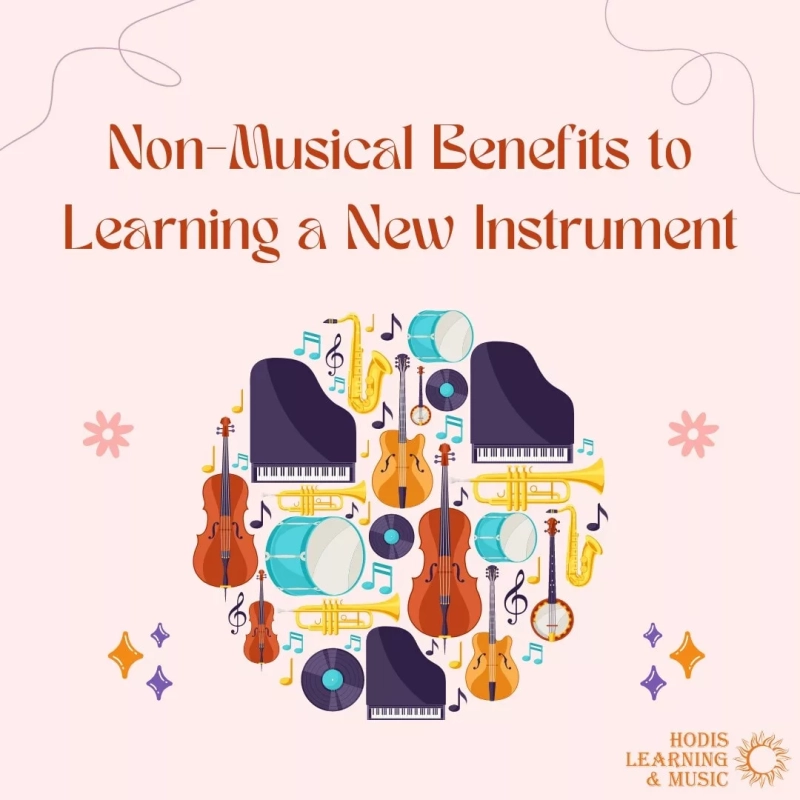Non-Musical Benefits to Learning a New Instrument
If you’re wondering whether learning a new instrument is the right hobby for your child (or even for yourself), there’s a lot to consider. What are the benefits of their chosen instrument? What style of music will they learn? What musical concepts will they be studying? These are all great questions that I hear often from new music students.
However, music lessons offer so much more than a strict music education. And oftentimes, having the right music teacher makes all the difference. Students can gain invaluable life skills from learning a new instrument, some of which are covered in the following list:
Connecting Both Sides of the Brain
Research shows that learning a new instrument that involves both hands (or even three or four limbs) creates connections between the left and right hemispheres of the brain. These connections allow both sides of the brain to communicate. This increased communication affords students greater motor coordination and increased ability to focus. It also helps students learn new languages and even read more easily. Essentially, learning a new instrument expands a student’s brain power.
Perseverance and Patience
At some point in their musical education, every student will inevitably struggle with a concept, piece, or technique. Students can use these experiences to build resilience in challenging situations. The same experiences can also help students cultivate a greater capacity for patience.
Managing Disappointment and Failure
As with any learning experience, learning a new instrument offers ample opportunities for disappointment and failure. Some students naturally practice and study harder to overcome their failure, while others learn this skill from their teacher. With motivation and encouragement from a trustworthy music teacher, students also learn to reframe their failures as learning opportunities.
Commitment
Sometimes students come home from school feeling too tired to attend their lesson. Learning the skill of showing up to obligations and thereby demonstrating their commitment is invaluable. (Just make sure your student demonstrates self-care by resting after their session.)
Working with Others
Learning an instrument teaches students how to work with others. If your student joins a choir or ensemble, then they will have opportunities to learn how to work with peers, as well.
Set and Accomplish Goals
With guidance from an expert music teacher, students will learn to make actionable and attainable goals in their studies. Accomplishing their goals reinforces their goal-setting skills.
Humility
Students quickly learn that mastering an instrument does not happen overnight. In fact, mastering an instrument takes many years of intense practice. The journey of learning an instrument is a humbling experience.
Lifelong Friendships
Throughout a student’s time learning a new instrument, they are bound to make friendships through music. Whether they make new friends in band, choir, or music class, some of these friends may stick around for life.
Choosing the right music teacher is crucial to a student’s education. Hodis Learning & Music employs expert music educators who are experienced in helping students break down complex concepts and skills so that they may grow in their musical abilities. Our music teachers are also skilled motivators who encourage their students to improve musically and non-musically. Check out our music teachers and their offered instruments here.



